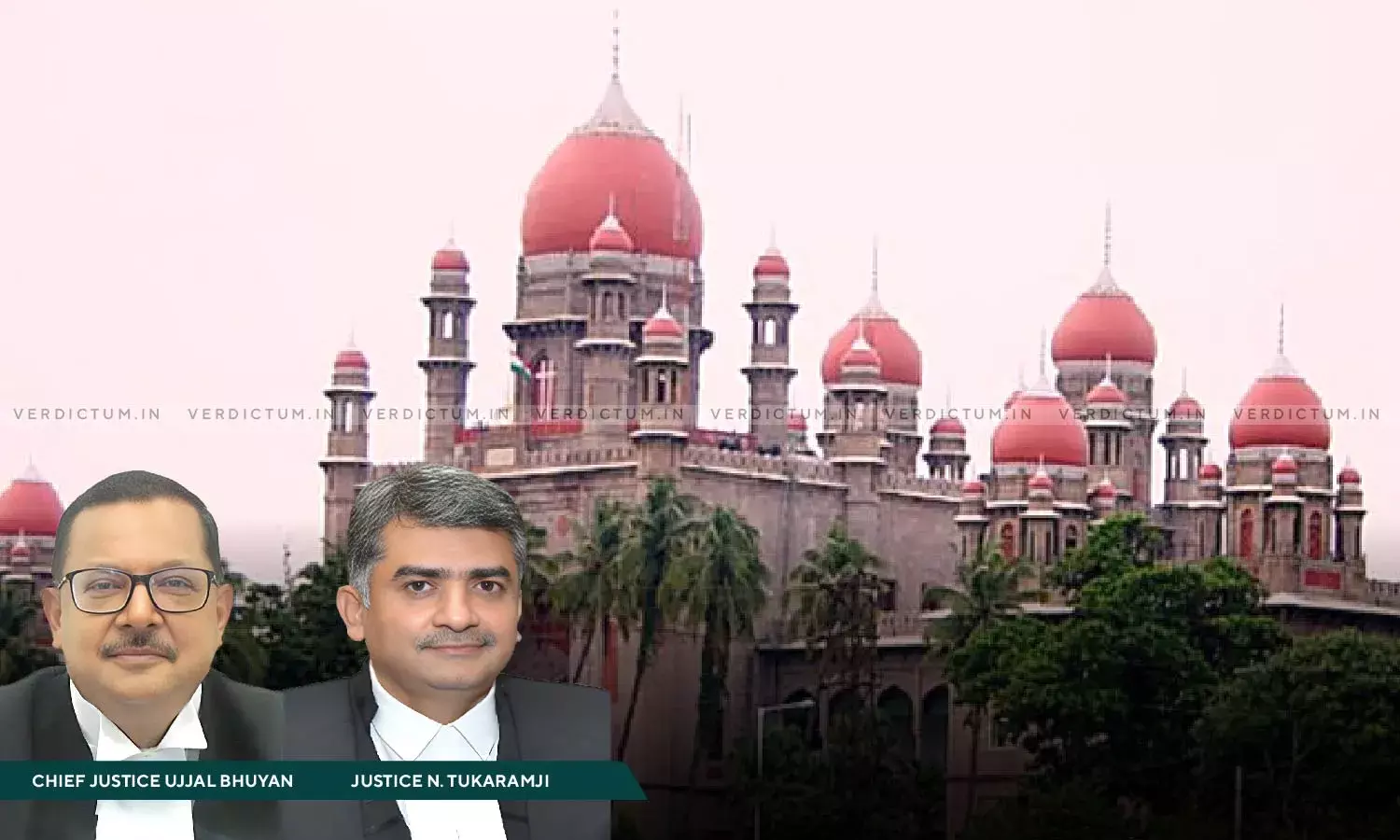Continuation Of Attachment Of Properties Under PMLA Is Not Justified When Case Involving Predicate Offence Stands Closed: Telangana HC

The Telangana High Court has held that the action of the Single Judge in refusing to grant relief to the Appellants by taking a view that their acquittal was on compromise and not on merit and then relegating the Appellants to the forum of the designated court, was not justified.
A Division Bench of Chief Justice Ujjal Bhuyan and Justice N. Tukaramji observed that "when there is no crime because of closure of the criminal case involving the predicate offence, continuation of attachment of the properties of Appellants under PMLA would not be justified".
Advocate Vedula Srinivas appeared for the Appellant and Advocate V. Ramakrishna Reddy appeared for the Respondent.
Going by the background of the case, the first Appellant was arrayed as accused in FIR registered before the Patancheru Police Station under Sections 120B, 420, 423, 468 and 471 of the IPC, 1860 and case was registered under the Prevention of Money Laundering Act, 2002 (PMLA) by the Enforcement Directorate. Thereafter, provisional attachment order was passed. Later, second Respondent filed original complaint under Section 5(5) of PMLA against Appellants and others. When the case was pending consideration before the file of Additional Judicial First-Class Magistrate, the case was referred to Lok Adalat and on compromise reached between Appellants and the de facto complainant, an order was passed discharging Appellant from the criminal case. Although Appellants informed Respondent about closure of case, the attached properties continued to remain under attachment.
Accordingly, the Appellants approached the High Court, whereby the Single Judge observed that the case has ended in acquittal by way of compromise and not on merit. Hence, declining to grant any relief to the Appellants, the Single Judge however granted liberty to the Appellants to approach the designated court for release of property by way of an application under Rule 3-A of PMLA Rules, 2016. Hence, present appeal.
After considering the submissions, the Division Bench noted that the sections under which Appellant was prosecuted are compoundable under Section 320 CrPC, and Sub-section (8) thereof clearly says that composition of an offence under Section 320 CrPC shall have the effect of an acquittal of the accused with whom the offence has been compounded.
Therefore, when the criminal case was closed by the criminal court upon being compounded through the medium of Lok Adalat, it had the effect of acquittal of Appellant, added the Bench.
Going further, the Bench highlighted that the expression “proceeds of crime” is intrinsically related to a scheduled offence and it must be derived as a result of criminal activity relatable to a scheduled offence.
From the scheme of Rule 3-A of the Prevention of Money Laundering (Restoration of Property) Rules, 2016, the High Court discerned that this provision is primarily meant for a claimant to seek restoration of property which he had lost as a result of the predicate offence leading to proceeds of crime and consequently the offence of money laundering.
However, this provision may not be applicable in a case where the predicate offence itself has been closed on being compounded under Section 320 CrPC, added the Court.
Resultantly, the High Court directed the Respondents to release the properties of the Appellants from attachment.
Cause Title: Manturi Shashi Kumar and Anr. v. The Director, Directorate of Enforcement and Ors.

